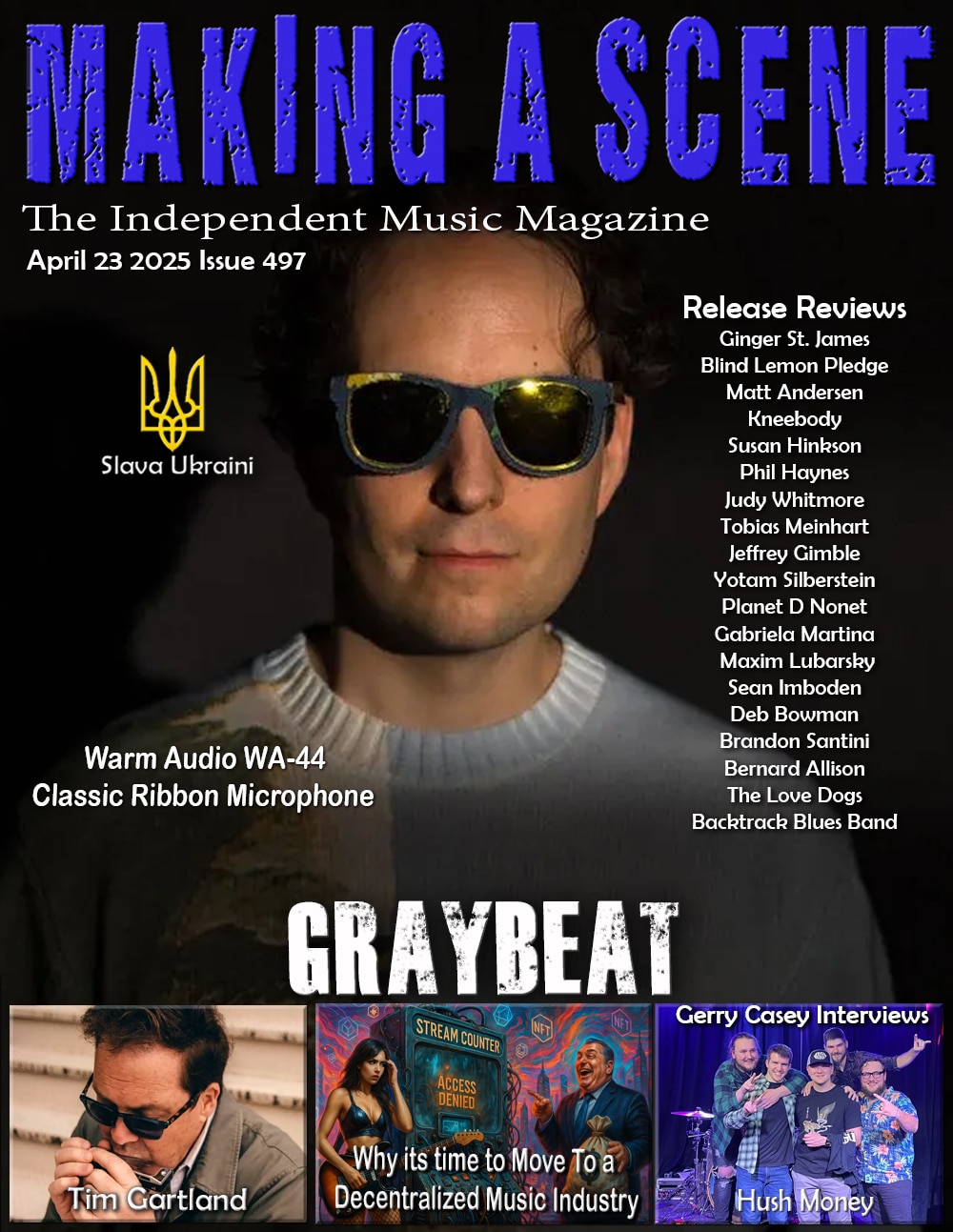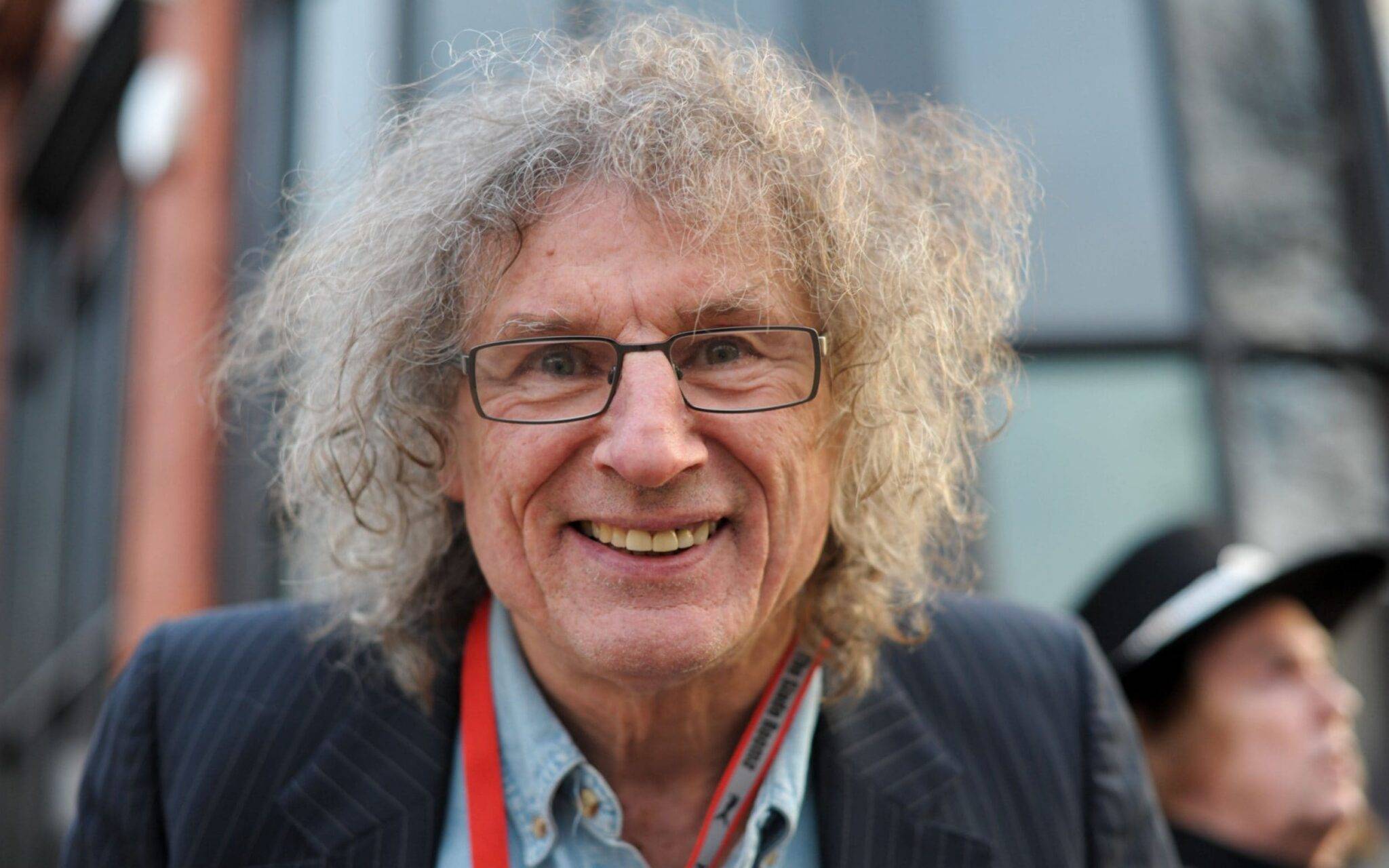Gerry Casey Interviews Don Powell
HOME PAGE
 |
 |
 |
 |
 |
 |
 |
 |
 |
 |
Making a Scene Presents Gerry Casey’s Interview with Don Powell Part 1 and 2
 Don was born on 10 September 1946 in Bilston, Staffordshire – and christened Donald George Powell. He had a fairly normal childhood. When his young his parents obtained their very first home – a council property in Bilston – an industrial area of the West Midlands.
Don was born on 10 September 1946 in Bilston, Staffordshire – and christened Donald George Powell. He had a fairly normal childhood. When his young his parents obtained their very first home – a council property in Bilston – an industrial area of the West Midlands.
His parents were Walter (Wally) and Dora Powell. Wally was a steelworker, whilst Dora worked at Woden Transformers – making electrical components. Don has a younger brother, Derek, and two sisters, Carol and Marilyn (“Mash”).
In the 1950’s, when he was aged 11, Don joined the local Boys Scouts group. It was here that he learnt how to play drums.
“I wanted to learn the drums as soon as I saw the drum-kit they had in the Scout hut, but I was told I had to learn the bugle first.”
“I used to stand at the back with the awful instrument in my mouth, and that’s about all it was doing. I couldn’t get any sound out of it at all. This carried on for a few weeks before I was found out and sent back to cleaning drums.”
“I did try, standing there at the back of the hut, puffing out my cheeks, but the bugle just didn’t make a sound….perhaps I didn’t blow it right, I don’t know – but in the end they let me play drums after all.”
“I had wanted to learn drums as soon as I saw the drum-kit they had in the Scout hut.”
 Don attended the Etheridge Secondary Modern School. Don was more interested in sport than he was schoolwork. Athletics and boxing were his keenest hobbies. He once won the school’s prize for running 100 yards. (He was presented with a copy of Robert Louis Stephenson’s Treasure Island).
Don attended the Etheridge Secondary Modern School. Don was more interested in sport than he was schoolwork. Athletics and boxing were his keenest hobbies. He once won the school’s prize for running 100 yards. (He was presented with a copy of Robert Louis Stephenson’s Treasure Island).
For some years Don was a keen schoolboy athlete, practising every night after school. He competed in the mile and cross-country events in the Midlands Amateur Association championships. For three years he was a member of the Bilston Athletics Club.
With boxing, Don was classed as a middleweight. His career in boxing ended as teenager, when he developed a serious ear infection, and was admitted to hospital.
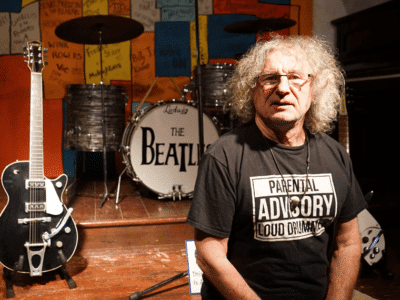 The doctors advised him against any more boxing. “I spent ten days in hospital and thought I was getting better and then they told me that I shouldn’t go back to boxing just in case I permanently damaged my hearing, and I was upset about that because I used to enjoy boxing. I was in the local Police Force’s boxing club, and used to think I was pretty good and felt really cocky until they put me in the ring with the British Schoolboy champion, who knocked the hell out of me. My nose used to bleed easily – I’ve had my nose broken three times.
The doctors advised him against any more boxing. “I spent ten days in hospital and thought I was getting better and then they told me that I shouldn’t go back to boxing just in case I permanently damaged my hearing, and I was upset about that because I used to enjoy boxing. I was in the local Police Force’s boxing club, and used to think I was pretty good and felt really cocky until they put me in the ring with the British Schoolboy champion, who knocked the hell out of me. My nose used to bleed easily – I’ve had my nose broken three times.
“I don’t know why, but I was never that interested in football – it didn’t catch my imagination like boxing or athletics. I think really the reason was that I was never any good at football, and knowing that, I just didn’t bother any more about it.”
With drumming, as Don was ingenious, he made his first pair of drum-sticks from the stem of an artificial Christmas tree.
“It was three or four years after that I joined my first group, borrowing a set of drums from a friend (Dave Bowdley) who lived a couple of hundred yards from me… I used those for the first six months, trying hard to pick up the professional way of handling the drum-sticks.
Dave (Bowdley’s) Dad had bought him an Olympic drum kit, but he couldn’t get into playing so rather than let the kit go to waste Dave said I could borrow it whenever I wanted to. I would practice away on it and the word got around that I was interested (in becoming a drummer).
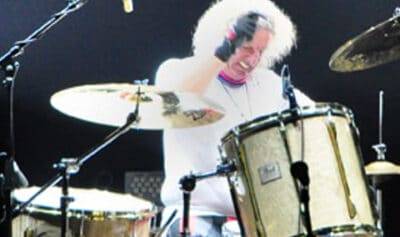 I used to go down the local youth club and watch a band called The Cadenza practicing – and it just baffled me the way the drummer was able to move his feet at the same time as his hands. That was something I found very difficult to begin with.”
I used to go down the local youth club and watch a band called The Cadenza practicing – and it just baffled me the way the drummer was able to move his feet at the same time as his hands. That was something I found very difficult to begin with.”
Don’s working life started when worked as a metallurgist at an iron foundary. Whilst working he spent eighteen months on day release at Wednesbury Technical College.
“I’d never really bothered working when I was at school. But it was so different going on to technical college. I really started to enjoy studying while I was there. Metallurgy fascinated me, and nothing would take my attention off work…then I spent some six months working on the analysis of brass, iron and steel, wearing a white coat every day, testing metals in the laboratory…it was a very responsible job, really, I think I would have made a career of it if I hadn’t become a musician.”
In 1963 Don joined a local Midlands band known as The Vendors.
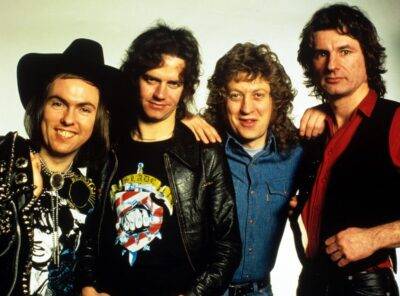 “There were few popular groups in the the local area at the time, and one of them was called The Vendors. They got to hear of me through someone and next time I saw them, at a Youth Club, they asked me about drumming (for them). I found out later that it wasn’t me that they really wanted, but just a drum kit, and I had to tell them that I didn’t have any drums but Dave Bowdley did. Anyway, to cut a long story short, they eventually asked me to join and so I had to persuade my dad to sign an HP agreement for my first set of drums.” (Note – this piece of history about Don “owning” a nice piece of kit, and being asked to join a band, was written into the Flame movie).
“There were few popular groups in the the local area at the time, and one of them was called The Vendors. They got to hear of me through someone and next time I saw them, at a Youth Club, they asked me about drumming (for them). I found out later that it wasn’t me that they really wanted, but just a drum kit, and I had to tell them that I didn’t have any drums but Dave Bowdley did. Anyway, to cut a long story short, they eventually asked me to join and so I had to persuade my dad to sign an HP agreement for my first set of drums.” (Note – this piece of history about Don “owning” a nice piece of kit, and being asked to join a band, was written into the Flame movie).
The Vendors initially consisted of Johnny Howells (singer) and Mickey Marston (guitarist). Don was introduced to them by an intermediary called Dennis Horton. A few weeks later a bass guitarist was recruited – Dave ‘Cass’ Jones.”It was quite an eye opener for me joining The Vendors because the only music I had liked until then was old rocking stuff – Elvis, Buddy Holly, Eddie Cochran. That was because I’d been a young kid in the family and my brother and sisters had completely influenced what music I’d heard. But by this time the Rolling Stones were around, and the Beatles, so I was way out of line”.
In the meantime Don was still working in the foundry.
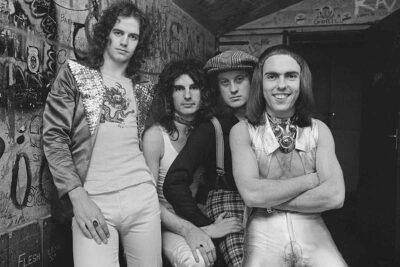 “I had a really great boss called Arthur who was interested in the group and so he used to give me afternoons off if we had a gig somewhere like Nottingham. (NB Arthur’s character was written into the Flame movie as his boss “Harold”). The foundry did something else for me – a guy who worked there (Chalkie White) wanted to manage us and it was him who put us in touch with a good guitarist when we needed one. So one night we went across town to see him, playing in a pub group and looking a bit out of place. Of course, it turned out to be Dave Hill.”
“I had a really great boss called Arthur who was interested in the group and so he used to give me afternoons off if we had a gig somewhere like Nottingham. (NB Arthur’s character was written into the Flame movie as his boss “Harold”). The foundry did something else for me – a guy who worked there (Chalkie White) wanted to manage us and it was him who put us in touch with a good guitarist when we needed one. So one night we went across town to see him, playing in a pub group and looking a bit out of place. Of course, it turned out to be Dave Hill.”
Dave Hill later joined the band a lead guitarist, before a name change of the band to The ‘N Betweens took place.
James (Jim) Lea, who played with the Staffordshire Youth Orchestra, was then taken on board as bass guitarist – before Neville (Noddy) Holder was recruited as singer. Noddy was a singer guitarist with a rival band called Steve Brett and The Mavericks. Don and Dave Hill approached Noddy to join – when both bands traveled by ferry to Germany to play separate gigs. Noddy at first refused – but later agreed.
At this stage The ‘N Betweens consisted of Powell, Hill, Lea and Holder – together with main singer Johnny Howells. Howells later decided to leave – and Noddy stepped up to become the lead vocalist. (The classic band line-up of Powell, Hill, Lea and Holder was then created).
In 1969 The ‘N Betweens changed their name to Ambrose Slade, and then in 1970 the name was shortened to just Slade.
Chas Chandler took over managing the band and success soon followed.
 |  Spotify |  Deezer | Breaker |
 Pocket Cast |  Radio Public |  Stitcher |  TuneIn |
 IHeart Radio |  Mixcloud |  PlayerFM |  Amazon |
 Jiosaavn |  Gaana | Vurbl |  Audius |
Reason.Fm | |||
Find our Podcasts on these outlets
Buy Us a Cup of Coffee!
Join the movement in supporting Making a Scene, the premier independent resource for both emerging musicians and the dedicated fans who champion them.
We showcase this vibrant community that celebrates the raw talent and creative spirit driving the music industry forward. From insightful articles and in-depth interviews to exclusive content and insider tips, Making a Scene empowers artists to thrive and fans to discover their next favorite sound.
Together, let’s amplify the voices of independent musicians and forge unforgettable connections through the power of music
Make a one-time donation
Make a monthly donation
Make a yearly donation
Buy us a cup of Coffee!
Or enter a custom amount
Your contribution is appreciated.
Your contribution is appreciated.
Your contribution is appreciated.
DonateDonate monthlyDonate yearlyYou can donate directly through Paypal!
Subscribe to Our Newsletter
Discover more from Making A Scene!
Subscribe to get the latest posts sent to your email.





































